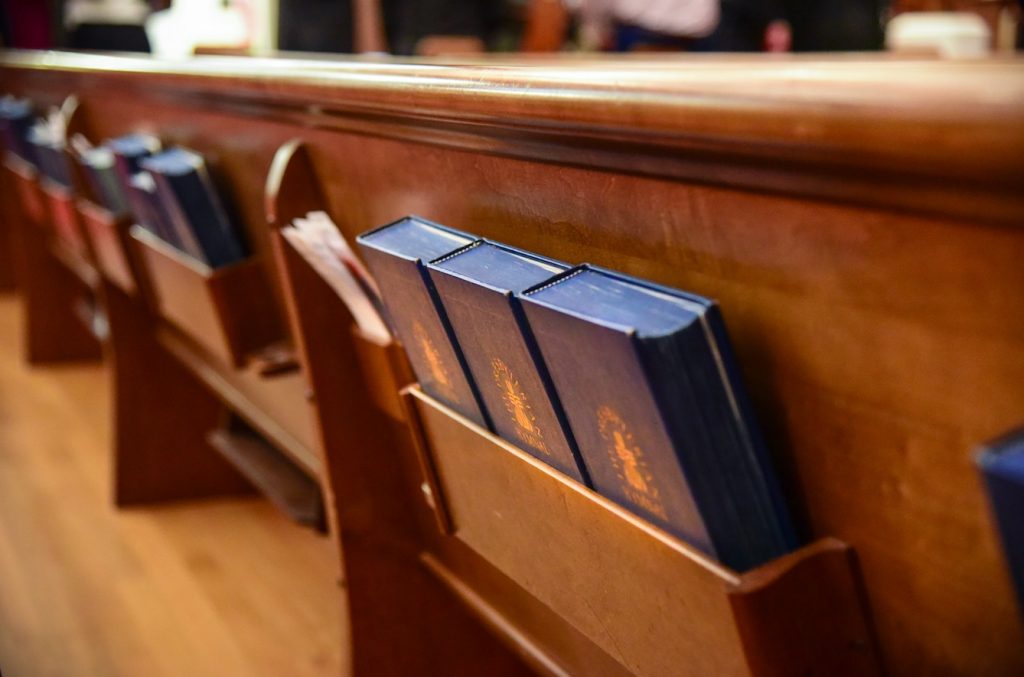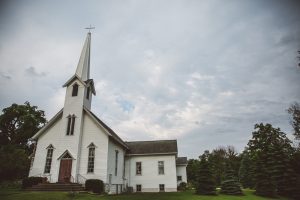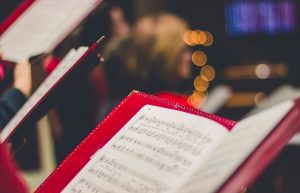Why did Keach entrench himself so stiffly when the shots began to ring out among the members of his church over congregational singing? Keach had become convinced that singing was an holy ordinance of Jesus Christ and, as Crosby, wrote, “laboured earnestly with a great deal of prudence and caution, to convince his people thereof.” Keach believed that the “want of God’s presence” in the churches was in part due to “the neglect of this great duty” of corporate singing. In recovering the ordinance, Keach clearly saw himself as furthering the Reformation with Sola Scriptura as the organic principle of his doctrine of corporate worship.
Reformation, ‘tis evident, is a hard and difficult Work, and ever was; ‘tis no easy thing to restore lost Ordinances, I mean, such as have for many Years been neglected, and strangely corrupted, through that Antichristian Darkness that hath for so many Ages and Generations spread over the Earth…I must confess, I my self, when first God enlightened me into his Truth, was an opposer of this Sacred Ordinance; but it was not for want of Ignorance, and partly through Prejudice, perhaps to such who I esteem, and ever looked upon since that time, a corrupt people in false in their Church-Constitution, and polluted with human Innovation, or Inventions of Men: the abuse of an Ordinance is subject to raise Mens Spirits to a dislike of the thing it self. But, blessed be God, I have, for near twenty Years last past, been fully convinced of the Truth of the Ordinance I now contend for, and have an equal esteem for it, (through Grace) as I have for any other Truth, knowing every Word of God is pure; and have found no little comfort in the practice of it, publickly in the Church, and in private also.
Keach did not hold his view in the abstract; he wrote and published hymns for most of his adult life, penning more than 500 songs, 300 of which he published in a 1691 hymnbook entitled Spiritual Melody. So convinced was Keach that Scripture comprehensively regulates worship, that his hymns are shot through with the language, categories and theology of the Bible. The subject matter of his songs reflect the themes and proportion of the Bible, as well as its substance and weightiness. The titles are arranged in a Trinitarian manner and include “God Compared to a Potter,” God Our Refuge,” “Christ Our Mediator,” “Christ a Surety,” “Spirit a Comforter,” “Grieve Not the Spirit,” “Word a Sword,” and “Scripture of Divine Authority.” In the introduction to his hymnal, Keach demonstrates his utter confidence in the Word of God as he hopes that his hymns will “…be all of use to the Reader, all being congruous with God’s Word, and according to the analogy of Faith.” Keach, like the Baptists of his day, was captive to the Word.
In unearthing the lost ordinance of corporate hymn-singing, the crucial texts for Keach were Colossians 3:16 and Ephesians 5:19-20 which spoke of “psalms, hymns and spiritual songs” and urged “singing and making melody in your heart to the Lord.” The main thrust of his argument, as stated earlier, was that the singing of Psalms, hymns and spiritual songs was a holy ordinance of God, a permanent part of Gospel worship. Contrary to Marlow, Keach saw the two above texts by themselves as providing full warrant for the singing when the body of Christ was gathered for worship. However, his argument was full-orbed and not limited to two texts. For Keach, the introduction of congregational hymn-singing was a “going forward in the glorious work of reformation” and the great pastor/theologian arrived at his conclusion via a hermeneutic profoundly different from that of his opponent.
In addition to finding ample evidence for his thesis in the New Testament, Keach interpreted the Old Testament within its proper historical-redemptive context to add significant weight to his case. Thus, while Keach saw clearly that the shadows and types of Old Testament finally and fully found their fulfillment in the Son of God, he correctly saw temple worship as a type of worship that would take place more fully under the New Covenant; contra Marlow, Keach realized that singing was neither a merely inward exercise, nor was it abrogated by advent of Christ. The singing of Psalms and hymns was “an ordinance of Christ from the Practice of the Saints before the Law, in the Law, and under the Gospel.” That singing was practiced before the law was evident from Exodus 15:1-2 where Moses and the children of Israel sang unto the Lord. Under the law, Scripture gives a multitude of instances in which God was worshiped through singing such as the Psalms of David and in the examples of Hezekiah, Asaph and Nehemiah. Under the Gospel dispensation, Keach points to the songs of Zacharias and Elizabeth, to the singing of Simeon and Mary, mother of the Lord, to the praises of Paul and Silas, and finally to Christ Himself, who sung a hymn following the celebration of the Lord’s Supper. The latter text (Matt. 26:30) pointed up its standing as an ordinance of Christ. Besides, said Keach, if the angels sang at creation as Job 38 declares, then it is the duty of men to sing because singing is an act of divine worship and an expression of joy. Singing of Psalms, hymns and spiritual songs was practiced throughout redemptive history and was not abrogated in the New Covenant.
Keach plumbed the same canonical line in setting forth his case to prove that such singing is a Gospel ordinance. He pointed to imperatives ubiquitous in both testaments that command the flock of God to “sing aloud unto the God of our strength,” to “Sing Psalms unto him and tell of his wondrous works,” and to “Come let us sing unto the Lord; let us make a joyful noise to the Rock of our Salvation.” The Holy Spirit, who wrote Scripture, requires members of the New Testament church to engage in corporate song because of the myriad commands under both covenants, he said.
Keach demolishes Marlow’s other arguments throughout the course of The Breach Repaired, devoting an appendix to answering his objections. Here, Keach asserted that singing praises to God in the Old Testament was not a ceremony that passed away but a moral duty that continues. Keach displayed a consistency and cogency in his understanding of Scripture all the while demonstrating the internal inconsistency of Marlow’s case. For example, Keach argued that if singing was a mere ceremony fulfilled in Christ, then “you may as well say Prayer was a Ceremony, because there were divers ceremonial Rites used in the performance of it, particularly that of incense.”
Did not Christ sing an Hymn after the Supper? Would he have left that as a Pattern to us, and annexed it to such a pure Gospel-Ordinance, had it been a Ceremony, and only belonging to the Jewish Worship? Or would the Apostle Paul have given, by the Authority of the Holy Ghost, such a Precept to the Church of Colosse to sing Psalms and etc., whom he strives so much to take off from Jewish Rites, Days, and Ceremonies? Had singing of Psalms, Hymns, and Spiritual Songs been a Jewish Ceremony, he would not have done thus. This is sufficient to convince any sober and unbiased Person, i.e. that Singing Praises to God is a Gospel-Duty; and that it did not belong to the Jews, in the Days of the Old Testament.
Keach also exploded Marlow’s argument against the singing of Psalms. Since 2 Tim 3:16 teaches that all Scripture is breathed forth by the Holy Spirit, “then the Book of Psalm” is inspired in the same way “for instruction by singing the Psalms too,” Keach wrote, else, “may you now as well say they are of no use to us?” Regarding Marlow’s concern for using “human compositions” in the worship of God, Keach compared hymn-singing to preaching: both were divinely-ordained elements of worship with the content of both also governed by Scripture. The content of a sermon “must be agreeable and congruous with the Word of God…and provable therefrom, or else `tis human.” In the same way, “in the compiling of a Hymn, it must be as to the matter, the Word of Christ.” Keach demonstrated the reductionistic manner of Marlow’s definition of the essence of singing—adoration not in spoken words but in the heart—by arguing that a melodic voice must be added for an expression of praise properly to be called singing. Keach showed how spiritualizing away one clearly prescribed element of worship leads to a similar abolishment of all others.
Our Sermons are no more made for us in God’s Word than our Hymns are, and we have equal direction in both these weighty cases; and I must tell you, this way of arguing you use is enough, if people did observe it, to overthrow all visible Worship and Ordinances, unless we could make it appear, that we had the immediate extraordinary help of the Spirit in the discharge of them. Away, saith one, with your carnal and human preaching, tis a Form invented and done by Art, will you call this Gospel-preaching? The Apostles spake as they were moved by a mighty Spirit within them; you must preach by immediate Inspiration and not precomposed Sermons, or else your sermons are formal. Thus you open a Door for Quakerism, and throw Stumbling blocks before the weak: I intreat you to consider of it.
Marlow and others had argued that Psalms, hymns and spiritual songs were merely three titles for Psalms. However, Keach answered by asking how the songs of Moses, Deborah, Isaiah, Habakkuk, Simeon, Zechariah and Mary should be categorized.
As to the Marlow’s fear that congregational singing would include the voices of non-Christians, Keach pointed out that there were unbelievers in the church at Corinth and that singing praises to God is a moral duty that is required of every human being whom God has created for the distinct purpose of His own glory. Regarding the prohibition of women to speak in church, Keach asserted that if Marlow’s view holds, then women may not be allowed to give an account of their conversion before the church before being admitted for church membership. Keach gives a brief exposition of the traditional interpretation of 1 Timothy 2:13, showing that women are not to usurp male authority in the church. However, singing is not asserting authority or headship and women must participate because it is a moral duty commanded of all persons (not only those who exhibit a divine gift for it per Marlow), whether male or female. The text does not utterly prohibit women from speaking before the congregation. Besides, Keach allowed that if hymn-singing is an ordinance and if a woman is forbidden from it, then she must also be excluded from all God-ordained ordinances, an unprecedented position in the history of the church.
In his appendix to The Breach Repaired, Keach summarizes his opponent’s views as “dangerous and pernicious.” He surmises that it is not difficult to see that Marlow and those of his camp have a “bad cause in hand” and that Marlow “reasons not like a wise and understanding Christian.”
To summarize, both men attempted to build their case from Scripture. However, Marlow and Keach were dealing from different hermeneutical decks. Marlow employed a flawed understanding of the Old Testament and parlayed a literalistic understanding of the texts and thereby presented mostly weak and faulty arguments. Keach viewed the biblical ground through a much clearer interpretational lens, one that was faithful to the analogy of faith and historical principles of interpretation. Because of this, Keach won the day and indeed repaired a significant breach in the worship of God.
The Outcome
Both Keach and Marlow requested a public debate over the issue and for a brief time in the early 1690s, it appeared such a contest might take place. However, any hope of a debate disappeared when the two men reached a stalemate over the rules that would govern such a contest. Keach and Marlow exchanged a number of terse letters for several months and both went so far as to appoint four “brethren” each who would meet together and examine their written works on hymn-singing. However, this too left Keach and Marlow at odds when Marlow demanded that Keach strike William Collins from his list of appointees because Marlow felt Collins had slandered him in the course of the controversy.
By 1696, the furor over hymn-singing among the two Particular Baptists was essentially over. That year, Marlow distributed The Controversie of Singing Brought to an End in which he conceded that singing of some type was taught in Scripture; however, congregational singing, in his mind, was not. The voice could sing but not in church with others. As David A. Copeland concludes, this was the argument of the General Baptist, not of the Particulars. To Marlow, there was a distinct difference in extemporaneous solo singing and lined out hymns sung by an agreeing congregation. Many dangers, Marlow felt, were inherent in this practice. But, if one could lift voice solo to God, a group effort to sing praises seemed the next logical step. No matter what argument Marlow marshaled, Keach had won. While 22 members of his church left, dozens remained. And even though slightly more than twenty churches condoned hymn-singing at the outset of the controversy, most of the leaders of the London Particular Baptist churches stood with Keach, including such venerable men as Hanserd Knollys and Hercules Collins. Marlow had employed a line of argumentation used by General Baptists to forbid the “promiscuous singing” of believers with unbelievers. General Baptists also opposed the use of “set forms” and their 1689 General Assembly was shocked to find that some churches were singing metrical Psalms “composed by one Mr. Barton” and warned the denomination against such “carnal formalities.” Similarly, Marlow’s argument bogged down in etymological sleight-of-hand, mistranslation and a baffling overall hermeneutic.
Once the public controversy between Keach and Marlow ceased, each congregation pursued its own course. Hymn singers rapidly gained ground, offering substantial proof of Keach’s hard-won victory. By the close of the seventeenth century the use of hymns had become a generally recognized part of public worship among Baptists as they accepted Keach’s recovery of the practice as falling within the parameters of biblical worship. The breakaway church at Maze Pond maintained its resistance to congregational singing through the first third of the eighteenth century. But in 1736 the body adopted congregational singing when the pastor it called refused to come unless the church agreed to reform its practice in favor of corporate singing. Advocates of congregational hymn-singing gained a significant ally in 1707 when a London Congregationalist pastor named Isaac Watts published his Hymns and Spiritual Songs. Watts set the pattern for the flowering of English hymnody over the next century.
In 1742, Keach’s victory reached the shores of the New World when the Philadelphia Association adopted a confession of faith that was virtually identical to the Second London Confession, one written by Benjamin Keach and his son Elias. In addition to an article on the laying on of hands, the new confession included an article on hymn-singing. The wording has a familiar ring:
We believe that ‘Acts 16:25, Eph 5:19, Col 3:16,’ singing the praise of God, is a holy Ordinance of Christ, and not a part of natural religion, or a moral duty only; but that it is brought under divine institution, it being enjoined on the churches of Christ to sing psalms, hymns, and spiritual songs; an that the whole church in their public assemblies, as well as private christians, ought to `Heb 2:12, James 5:13,’ sing God’s praises according to the best light they have received. Moreover, it was practiced in the great representative church, by `Matt 26:30, Matt 14:26,’ our Lord Jesus Christ with his disciples, after he had instituted and celebrated the sacred ordinance of his Holy Supper, as a commemorative token of redeeming love.
Conclusion
What emerged from the controversy in general and from Keach’s work in particular was an understanding of worship among Baptists that was more faithful to Scripture. Congregations joined their voices together in Psalms, hymns and spiritual songs with full assurance that what they were doing was worshiping God as He Himself had set forth in holy writ. Former Southern Seminary church music professor Hugh McElrath, who had little use for Keach’s biblical arguments for the inclusion of hymns in corporate worship, nevertheless properly characterized the venerable pastor/theologian’s contribution to Baptist and evangelical life: “Benjamin Keach can be thanked not only by Baptists but by Christians at large for the often under-appreciated privilege of holding a hymnal in hand and singing forth praises and prayers in the congregation of saints.”































